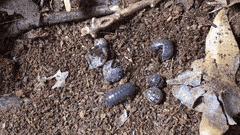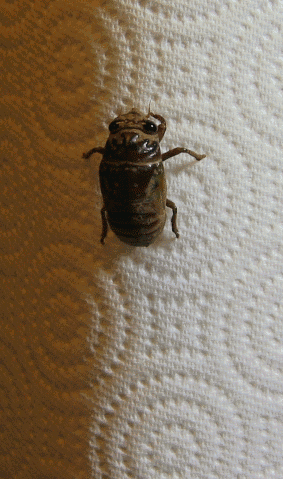
How does a person arrive at Post-humanism, in navigating the interface of structural violence & commodification thru the constructs of gender and race? 1
// Tactile Exile
[Networked performance with isomalt or industrial beet sugar—vitally, water-soluble and fermentable by lactobacilli in anaerobic conditions.]

The mode most familiar to exorcise a soured & spent paramour, for me, has been to pick up the pen; in my early 20s, I wrote on collected abuse and humiliations, so that today I could write digital.treatise firmly against assimilative capitalist-imperialism.
This is a space for transparent economics inclusive of ecological constraints.
We write not to inundate, but to grow towards an emergent, hybridity-compelled picture within reach. To note the inadequacy of satire as call to action, we commit to transparency in alliance for reciprocity.
I’m no authority to imply artists shouldn’t make wallworks for themselves, but individualism has died on the deforested, clear-cut ground of the 2019-ongoing pandemic’s irrevocable shift in biosphere destabilization. Our recognition is an invitation for unison against obsolete cycles of hoarded extraction.
Both the bane and the opportunity is that art can reify ideology—a predigestion more appropri-able, more communicable; how else do we expect to visualize the sociological guillotine to divest & de-transition from capitalist-assimilation.
Art seduces, pacifies, and galvanizes rupture; and I believe in instances it escapes the seal of the performative frame.
I am at this art school and not an interchangeable New York equivalent, because I believe in throwing one’s visuo-cultural heft into materializing an economic left working in tandem with ecology and firmly against capitalist-imperialism. Visuality is grease for the gullet.
If you cannot communicate it in a way that teaches others and is then reciprocal, it’s pretension to claim to know more than you are able to impart. Education is a process of seeing and hearing people, a mutuality to ease receptiveness for pedagogy and instruction, a co-labor of influence & re-calibration; assurance is vital to consensus.

I am a systems artist and writer interested in a counter rhetoric of violence—ecocidal & socioeconomic, of twin DNA. I work in soil-building with insect ecology, machinima, installation, and flexible biopolymers produced independently of petrochemical, monoculture, and intensive aquaculture industries.
Writing offers a set of instructions to conjure image. This encoding relationship extends to programming language and biological code; and a cultural production that harnesses this awareness / ecology is in a position to access the permeability of aesthetic process and political process.



// 'Stomach the Earth'
[Sound and soil installation. Bokashi lactoferment mist, speakers, piezo ceramic atomizer, mycelial compost, clay vessel vermiculture, soil isopods, shredded packaging waste, edible legumes, nasturtiums, marigolds, carrots, calendula.]
Can technology be deployed and automated to mitigate the harms of industrialization?
// 'DirtyMoney'
[IR Thermography makes visible the metabolic activity of microbial diversity vital to living soil.]


“Sylvia Wynter writes, ‘The struggle of our new millennium will be one between the ongoing imperative of securing the well-being of our present ethnoclass conception of the human, Man.’ Her work deconstructs the way ‘human’ was created as a category. This concept of the ‘human’ was tweaked throughout history to serve the projects of colonialism, slavery, racism, and subjugation. Through religious and economic institutions, the idea of who is considered human and what it means to be human has for hundreds of years been a political project by those in power. Wynter gives the example of colonial subjects and slaves being designated as nonhuman, with submission leading to salvation, allowing 'inferior subjects' to become human.
We can see the myth of automation replacing humans as yet another attempt by those in power to sharply define the boundaries of what being human means, elevating AI to a form of power that seems to have a righteous, natural force in our lives. This myth defines being human as simply being a rational, efficient worker. The fear instilled by these radical proponents of AI is ominous and forceful, and it implies an inevitability written by those in charge—leaders in the tech world, owners of companies that are building this AI.”
Yet, instead of designing technology that fosters and cultivates communal behaviors of trust, we still design technology that assumes scarcity and cultivates selfishness. This coercive design relies on a view of human nature that comes from a Hobbesian era when people barely had running water, a fictional, universal view of humanity that has been disproved over and over by research.
—Xiaowei Wang, “Blockchain Chicken Farm”.
Advocate distribution of value / wealth / health of the whole system by removing the element of scarcity and rewarding efforts that benefit the whole.
There are artists active in the socially-engaged, politically non-null arena which escapes re-tooling by capitalism, so I retain optimism about the viability for Decentralized Autonomous Organizations.
Pure indictment language is the equivalent to a disinvite; this catharsis offers then only performative value, an equivalent nonstarter as is techno-solutionist myopia.
Even the misguided attempts aggregate a paradigm expansion, an invitation artists / writers will hungrily nutrify into socially digestible morsels. I am the unsated woodlouse, and I am here to shred. circulate. aerate.

Gardening can be a radical act of reclamation. Stewardship means cycling carbon, circulating nutrients, soil-building a cohabitable future, and food-forestry for habitat refuge.
Economy is Ecology. The health of our social survival hinges on ecologically sound planning. Artist-mediated, brokered cooperative rehabilitations are crucial against the industrial.
We must not remain siloed—by medium-specificity, by profession, by separatism, notions of purity or contamination or identity from a humanist genealogy dominated by a Western philosophy of control.
Structural violence of gender, race, assimilation, and hierarchies of humanness we can hold accountable for the impoverishment of the more than human. Only through clarity can we build consensus, can we exact agency that undermines industrial corporate monopoly and the extractive displanting of all living and nonliving for profit imperialism.
Regimes are but ephemera enacting material traumas.
Critical design is a tool to reflect on why is it that everything on earth has to become a resource to meet human needs;
—why not eliminate plastics altogether instead of spending time making biodegradable versions? Why even center the accessible “consumability” rather than the relationship to soil-building?
Populism is a political strategy, speaking to the interest of many to create a mutual recognition of shared interest, so people can improve their lives together. A key byproduct of neoliberalism’s rise is that it has made us see ourselves as “producers and consumers and not as citizens and activists capable of challenging structural conditions and developing alternatives.”
As culture workers, we do not have to produce in capitalism’s image. Our habitat ecology provides a vitality & diversity of epistemologies to model symbiotic output.
Are capitalist institutions / cultural gatekeepers really the best partners for ecological means?
I am thinking about the delicacy with which one treads to both condemn and invite—cultivate curiosity, criticality, and forge spatial transgression on disenfranchised soil.
Adrian Piper’s formidable rhetoric and commitment to discomfort bolsters my courage.
Abstention from staking a position is a political act by the institution feigning depoliticization / neutrality, while quietly courting the monetizable.
Democratized process is nullified by neoliberal ownership structures. This debt and labor grift serves shareholders of corporate academia, with neither protections nor adequate compensation for producers of value, educators or graduates at transaction day’s end.
The one thing that makes sense to me under the enclosure of neoliberal capitalism is to propagate fungal life systems in the basement of my institutional gatekeeper. The naturalization of violent hierarchies of the inhuman, rather than heterarchical mutualisms is the alienation I hope to supersede through making kin.
Artists can broker visionary organizing in interests of the web of life.
I think of accessible knowledge-pooling akin to moisture- and nutrient-retention goals in rehabilitating soils.
I would love to help organize a curriculum around The Arts of living on a damaged planet. To fill in the gaps to Vitality and diversity, a missing logic in the industrial.
-
Edible & useful plant species common to the urban wilds
-
Foraging & processing natural fibers
-
Post-consumer plastiglomerates, extrusion, & revalorization beyond the downcycled
-
Bokashi compost - fermentation for nutritive urban soils
-
Worm-homers, product design for co-culture in the home
-
Fungi lab & municipal wood waste
Trust is a key network factor for rehabilitation.
It’s not mandatory to adaptively brace for xeriscape if we challenge the reckless finitude of 'terminality', if we dissipate human centrality and affirm community sovereignty inclusive of more-than-human interests.
The power differentials of both access and production of more capital—infrastructural & technological—upperhand troubles me. Cybernetic and blockchain technology itself is not inherently good or bad, but deployed by extant human systems of disparity can escalate / accelerate / self-perpetuate / mirror manmade inequities.
All of us living, breathing are instrumental in this relationality, beyond one of complicity, lest one choses complacency.
Greater than any personal history, greater than generational thread, we live and witness the sublime qualities of collapse by extraction, of financialized uninhabitability, with overpowering impact and abstraction marbled into the whole, as some inextricable ore. If power differentials in a finite planet are not built to sustain, then culture workers are the producers of the positive virality key to upset.
My maternal homeland is one scarred by rare earth mines and notoriety for the toxic slag pool thrice the size of Central Park. On my father's side, I come from Cultural Revolution sharecroppers famined by the state. Residue never fails to simmer to the surface, soil security would become my life's work.
A Genealogical tree of writers/ thinkers engaged:
-
Hans Haacke
-
Anicka Yi
-
Orkan Telhan
-
Daisy Ginsberg
-
-
-
Sylvia Wynter
-
Adrian Piper
-
Hito Steyerl
-
Trevor Paglen
-
Kyle Whyte
-
Tim Morton
-
Francesca Ferrando
-
Nato Thompson
Mary Mattingly
CITATIONS
1. Xenia, Language & Xenophobia: Every encounter produces, even if for only the flash of an instant, a xenia—the occurrence of coexistence which is also an occurrence of strangeness or foreignness. It is a strange occurrence that, nonetheless, happens constantly; we have no other experience of living than through encounters. We have no other use for language than to have them.
Such difficulty, even when it doesn’t produce conventional sense, may be engaging in its own right; or, from another point of view, it may be disengaging. It may be emblematic of resistance, elaborating a rejection and even a defiance of the production of totalizing and normalizing meanings; in resisting dogmatism, it may create spaces for ambiguity, provisionality, and difference. It may function as a distancing device than submit to manipulation by the author, or it may serve to roughen the surface of the work, so that it catches one’s attention, impedes one’s reading, wakes one up to reality.
Language, employed as an instrument of sincerity, puts one not only in relation but in a relation that involves “exposure to the claims of others. . . For, ‘sincerity’ is not so much a true account of one’s inner feelings . . . , as an acceptance of what exceeds the self.
excess creates difficulty even as it erupts from it—in unassimilable surpluses of meaning, in impossible games, in rage, in disruptive and disordering pleasure, in laughter.
—Lyn Hejinian, Barbarism, in The Language of Inquiry, 2000.
2. Yusoff speaks of the “deformation in the formation of subjectivity, a deformation that presses an inhuman categorization and the inhuman earth into intimacy.
An inhuman proximity organized by historical geographies of extraction, grammars of geology, imperial global geographies, and contemporary environmental racism.
Absorbent qualities of marginalized bodies to take up the body burdens of exposure to toxicities and to buffer the violence of the earth under the legacy White Geology and its geographical and subjective dispossession.
Harms have been knowingly exported to black and brown communities under the rubric of civilization, progress, modernization, and capitalism.”
—Kathryn Yusoff, A Billion Black Anthropocenes or None, 2018.





